The issues of public diplomacy and strategic communication are of considerable importance all over the world. In times of growing tensions their role cannot be underestimated. Their various forms, methods and aspects were discussed by an expert community of various countries during the recently held roundtable in Moscow. The event was organized by RANEPA, Advisory Committee on Humanitarian Cooperation, Rossotrudnichestvo Federal Agency, Association of Studies, Research and Internationalization in Eurasia and Africa (ASRIE), European-Russian Communication Management Network (EU-RU-CM Network), Institute of Contemporary International Studies at the Diplomatic Academy and the International Centre for Social and Political Studies and Consulting (ICSPSC). The moderators were DSc. Evgeny Pashentsev, Leading Researcher atthe Diplomatic Academy of the Ministry of Foreign Affairs of the Russian Federation, Director of the International Centre for Social and Political Studies and Consulting, Coordinator of the European-Russian Communication Management Network; DSc. Alexander Sukharev, Professor, Russian Academy of National Ecomomy and Public Administration, Deputy Head of Rossotrudnichestvo Humanitarian Advisory Council, and Anna Velikaya, PhD, Asian Strategic Studies coordinator of ICSPSC, member of Rossotrudnichestvo Humanitarian Advisory Council. Also, the meeting was attended by RANEPA students, including foreign ones.
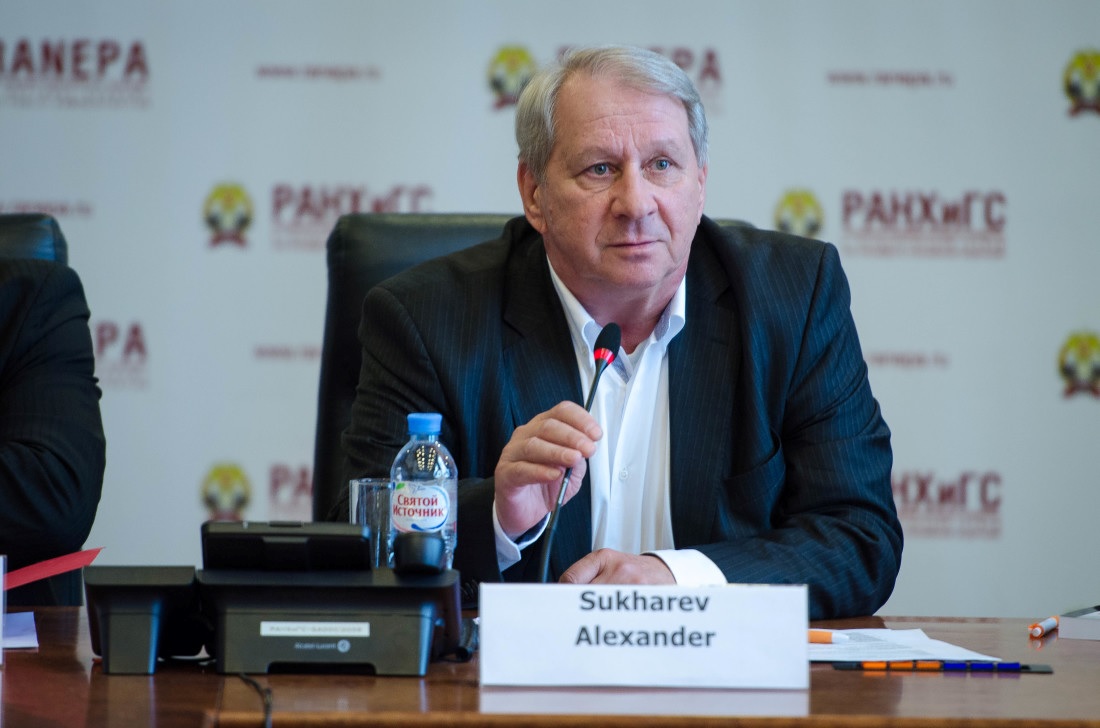
Prof. Alexander Sukharev welcomed the participants and guests and presented the theme of the round table. Prof. Sukharev stressed that public diplomacy is especially important nowadays not only for Russia but for the whole world, because the academic discussion can help to analyze the ways of development of the so-called “post new order”. Research conducted in 2017 in Great Britain demonstrated very important key points characterizing the recent developments in international affairs. Firstly, phenomenon such as fake news, deception, cheating and etc. took place in the mass-media space in 2017. Secondly, simultaneously, political and military confrontation in international affairs took place. “We have chosen a way of destruction and horror”. The environment is being deteriorated more and more. As Prof. Sukharev concluded, we need public diplomacy to be more fair and communicative, in order that diplomats can understand each other even better.
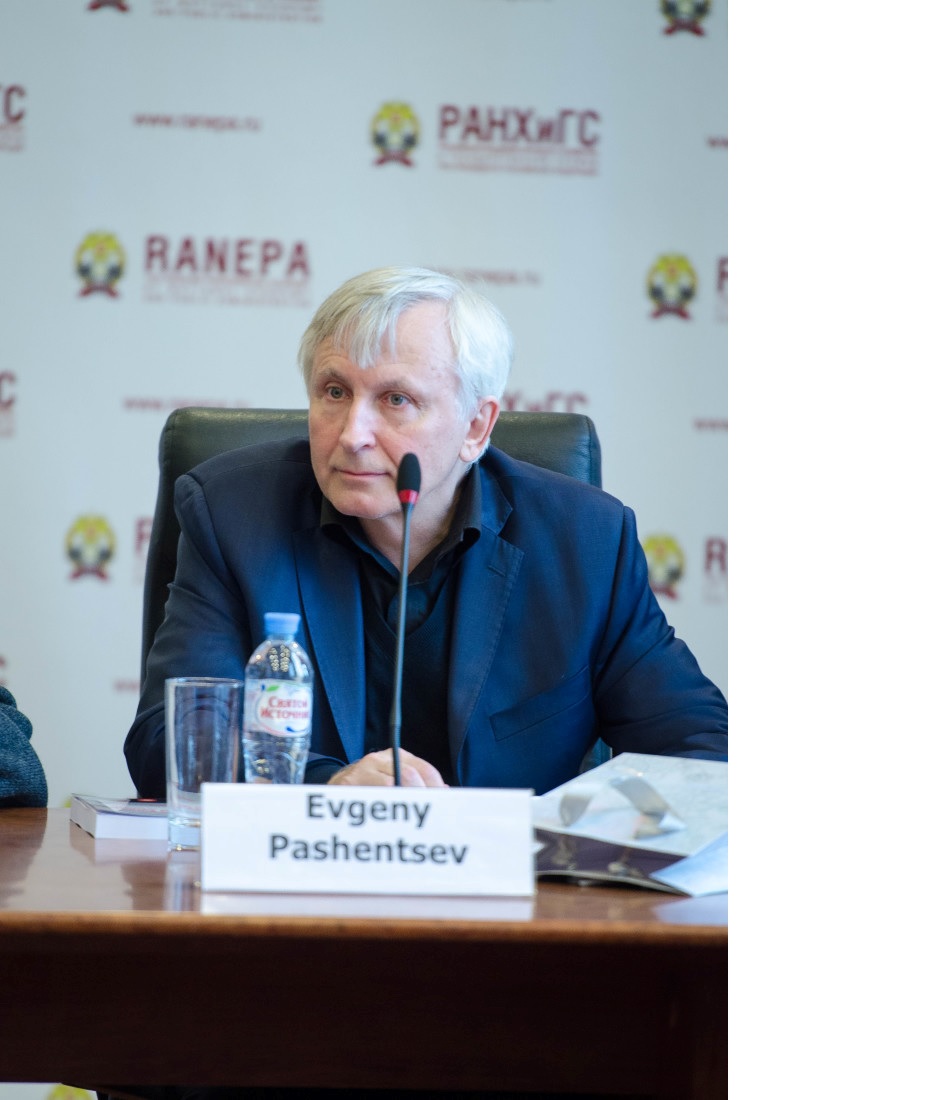
Prof. Evgeny Pashentsev stressed the importance of strategic communication in the contemporary world. Many experts discussed how to exit the current crisis in international relations. The prime question is how to find solutions which are usually impossible without the synchronized efforts of the USA, Russia, China and other countries. The general approach demands synchronization of deeds, words and images in favour of basic long-term interests of the whole society and not narrow corporate interests; this can bring strategic communication to a new level. Researchers in political sciences and other disciplines have to analyze in a systemic way all the new technological, social, geopolitical shifts to find answers to the hot issues of the day because the establishments nowadays have very often no answers. Our task is not to repeat the situation before WWI and WWII. Big Data, AI, revolutionary achievements in genetics etc. bring together serious risks and opportunities. It will be necessary to “change horses” while crossing not just a stream but an unknown great river we never passed before. The opposite shores are very far and in vague but we have to cross it not being late forever. The question is not whether this is possible. The question is when it will be. Old state machinery and established social relations are being questioned and we are shortened of time to escape the final tragedy of a potential WWIII while already entered its “cold” phase. But positive solutions are still possible and we need to consolidate the search for them through joint efforts of all nations and not at least the efforts of Academia.
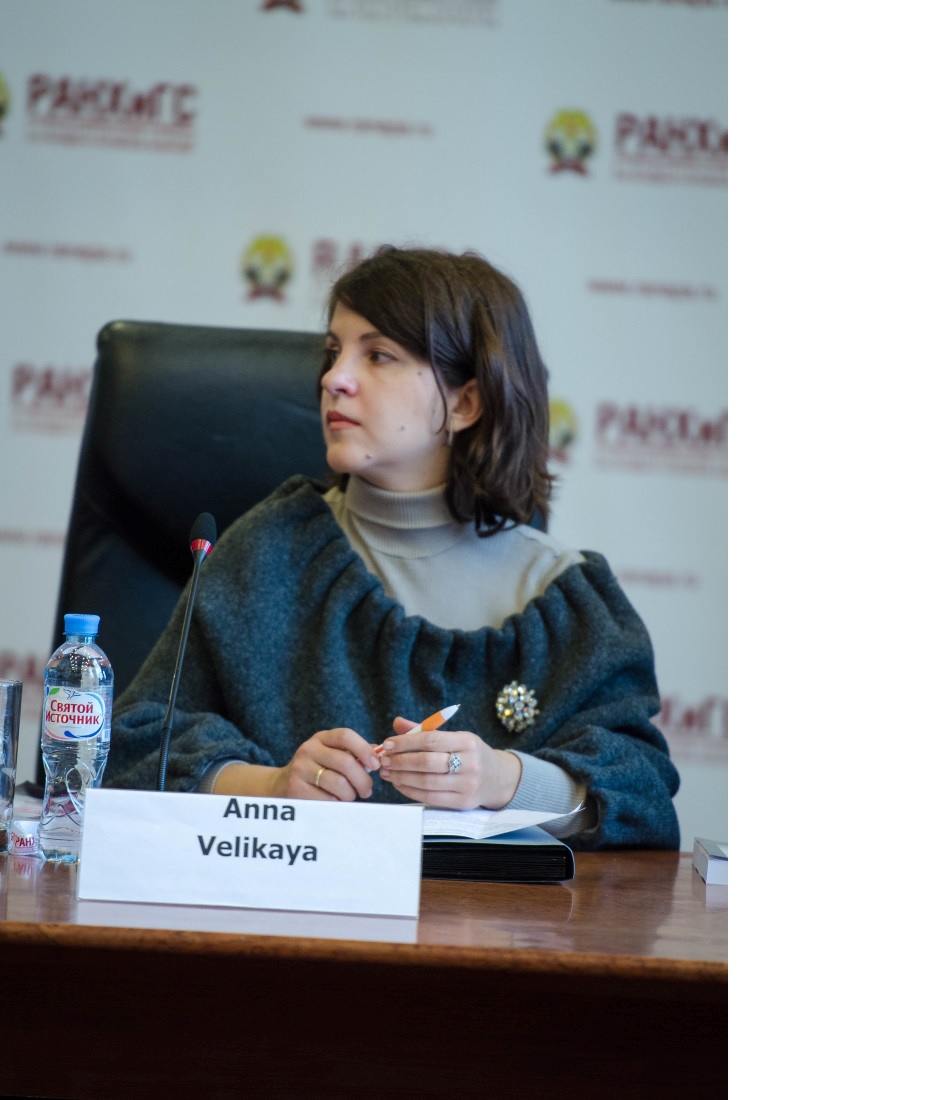
Dr. Anna Velikaya proposed to use public diplomacy more actively, in order not only to listen, but also to hear each other. In a situation where Russian–Western relations are at an all-time low in the quarter of a century, normalization seems to be urgent. Unfortunately, we are witnessing a lack of trust from both sides. It is impossible to discuss the new roadmap of our relations; there are many lost opportunities and obstacles. A “positive agenda” is “the road not being taken”; contradictions between Russia and Western countries are too overwhelming and there is not a chance to overcome them by focusing on pragmatic issues.“Still, not only our diplomats, but also the expert community and civil society should focus on finding solutions to the problems we are facing nowadays”, Dr. Velikaya concluded.
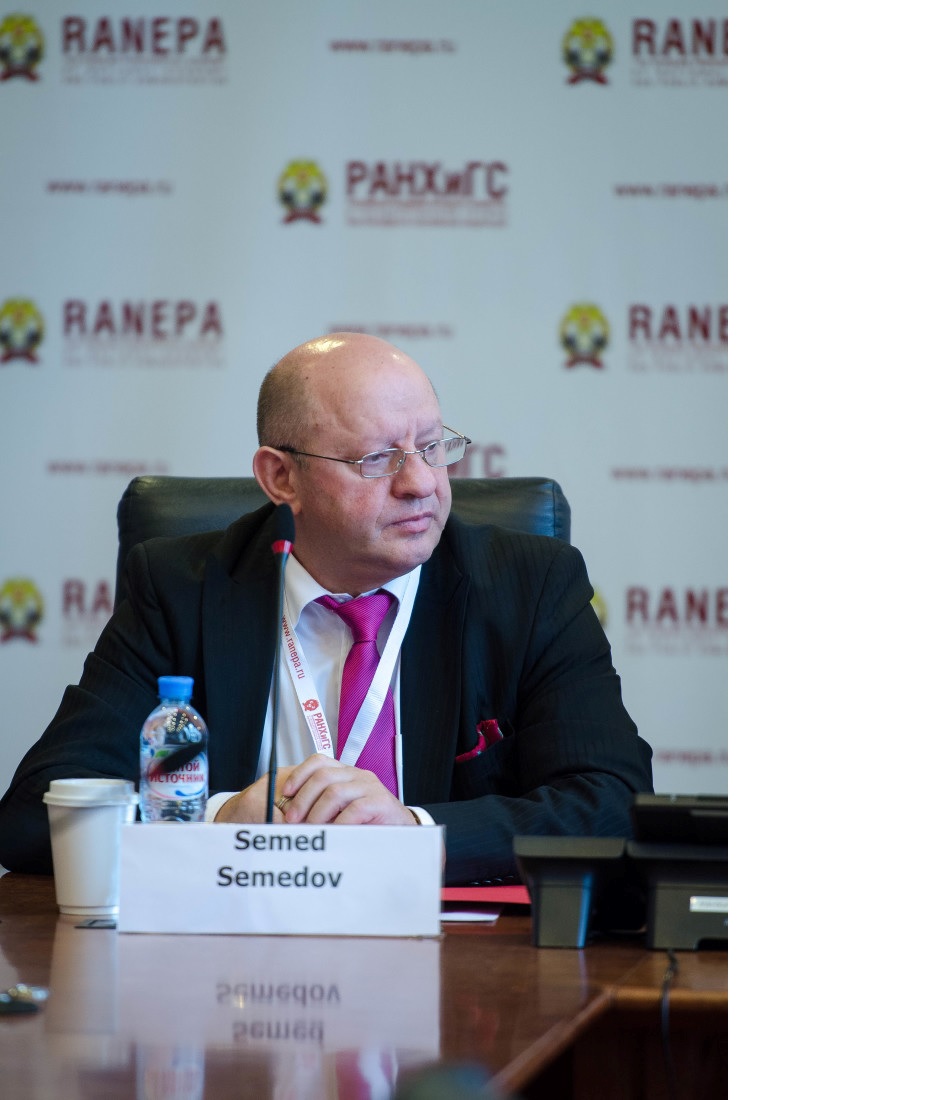
DSc. Semed Semedov, Head of the International cooperation department at the Russian Academy of National Economy and Public Administration, member of Rossotrudnichestvo Humanitarian Advisory Council, analyzed public diplomacy as an important area in the civil society and academic discourse, fostering bilateral and multilateral contacts. Still, we can’t any longer continue with the current level of confrontation – we should try to find platforms for discussion on cooperation and mutually acceptable decisions, said Prof. Semedov. It’s necessary for academics from all over the world to develop cooperation in all fields and different research branches.
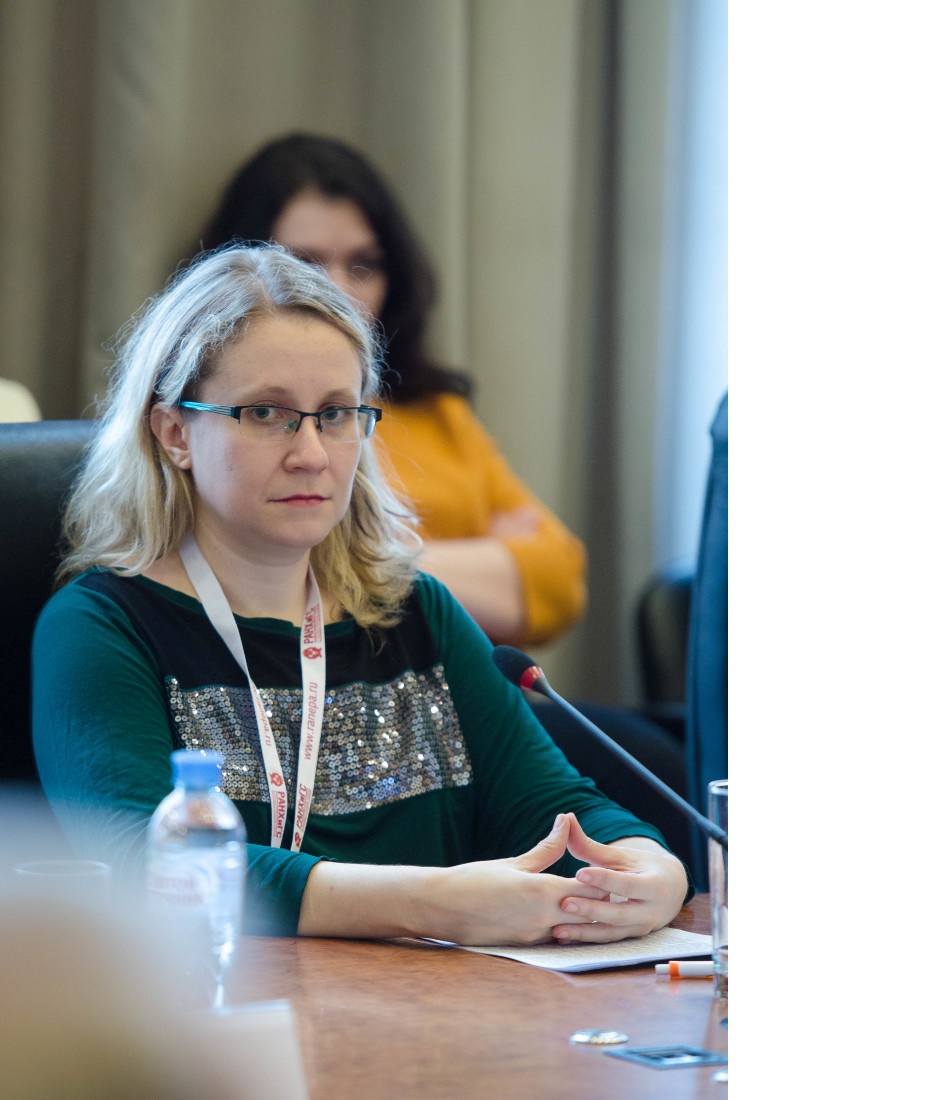
DSc. Daria Bazarkina, Professor at the International Security and Foreign Policy Department, RANEPA, programme coordinator on communication management and strategic communication at the International Centre for Social and Political Studies and Consulting, presented her analysis of the communication provision in the EU’s counter-terrorist sphere. Following her analysis of counter-terrorist communication provision in the European Union from 2001 to the beginning of 2016, we can highlight some undoubted achievements. The effective integration of national security authorities’ work into the European system allows nowadays to conduct more concordant counter-terrorism operations, coordinating actions of national intelligence agencies. New counter-terrorism structures have been established, and a system of expert advisory bodies has been formed. Europol is coordinating the collaboration of all EU member states’ police services, actively synchronising information exchange among the national subdivisions. The agency’s publications are important analytical data sources for other European structures (in particular for EuroJust). EuroPol, EuroJust and the EU Counter-Terrorism Coordinator have formed an extensive analytical database being established at the very beginning of its creation.
Regardless its undisputed advantages, the communication provision of the EU counter-terrorism agencies has also definite disadvantages. The political factors leading to the inefficiency in the counter-terrorist agencies’ communication include: (1) geopolitical rivalry among the nation states, leading to competition among their intelligent agencies; (2) strategic communication subdivisions’ concentration on geopolitical tasks (for example, their participation in the information warfare with Russia), leading to a loss of attention to the communication provision of counter-terrorism activities; (3) opportunism in politicians’ behaviour that imperils the national security (the Spanish government’s communication the after the terrorist attack in Madrid is a telling example).
The organisational factors leading to a decrease in the efficiency of communication during the fight again terrorism in the EU are: (1) the dependency of the Coordinator and European agencies on the national governments’ interests (which is apparent, for example, in the selection of intelligence data that are voluntarily transferred to the European bodies) and, as its consequence (2) the absence of an adequate level of communication with and an insufficient representation of the agencies’ effective work for society. For example, the collection of intelligence data by various structures (by the European Counter Terrorism Center at Europol and the EU Intelligence Analysis Data) helps to accumulate a large amount of timely information. However, in open access publications there are contradictions indicating the lack of strategic planning of communication.
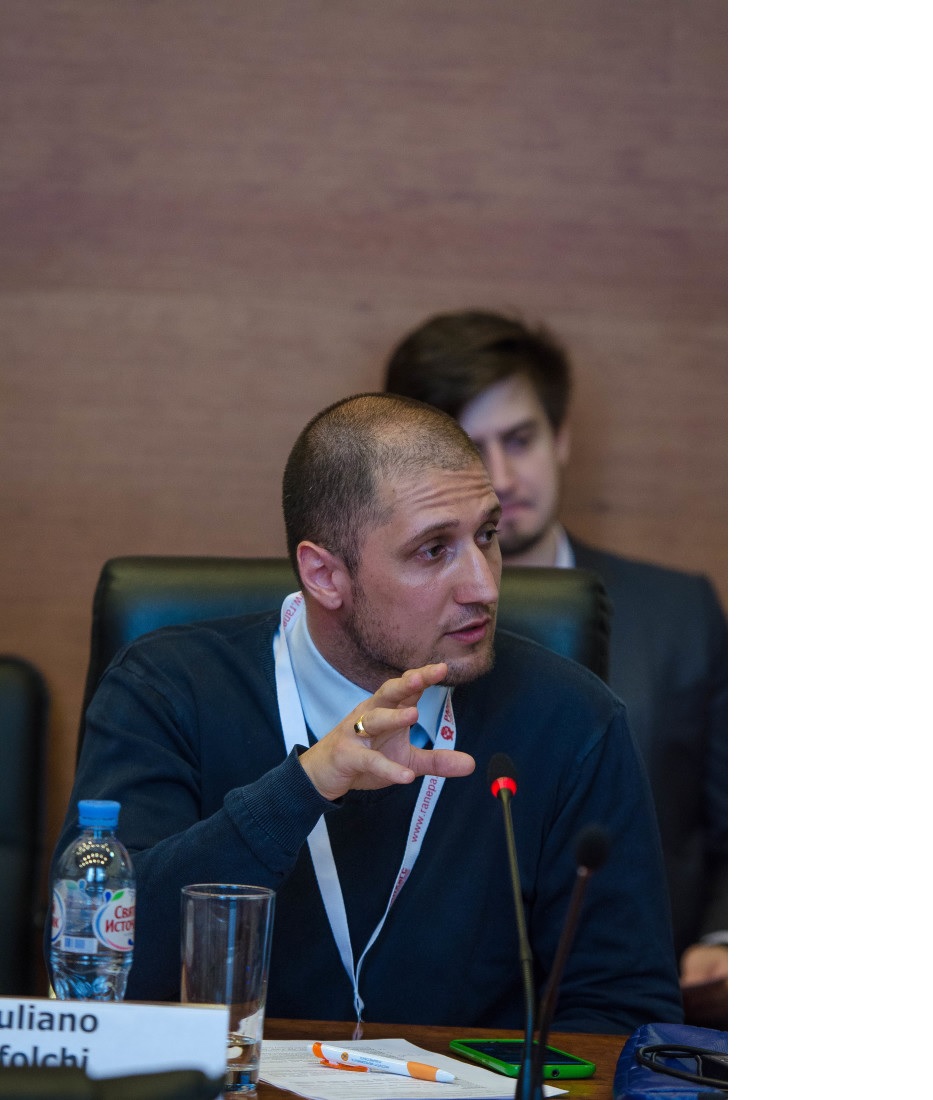
Mr. Giuliano Bifolchi, co-founder of the Association of Studies, Research and Internationalization in Eurasia and Africa (ASRIE), analyst in security, conflicts and international relations (Italy), noticed that, unfortunately, in practice, Western mass media present Russia as an enemy, and not as a partner in counter-terrorism, while at the same time influencing public opinion. We have different opinions on terrorism, there is no common definition and perception for Russia and the West. There are different opinions on terrorist organizations list like in cases such as Hamas, Hezbollah, and the Turkish PKK. The consequence is the absence of a common counter-terrorist strategy, regardless of the fact that al-Qaeda and ISIS proclaimed the attacks both against the EU and Russia. Another issue is the body East StratCom and efforts to put Russia at the same level as IS’ propaganda. Also, in spite of many requests from the Russian government to the Finnish authorities to shut down the “Kavkaz Center” website, this resource remains protected not only by the authorities but also by international organizations such as the Soros Foundation.
It is the current situation in the relations between EU and Russia, especially after the Ukrainian crisis. But we need to cooperate. We think that we defeated al-Qaeda and ISIS but it’s not true, says Mr. Bifolchi. According to his field research in Northern Africa and the Middle East region, especially in Iraq, there are still many terrorist fighters, among them Europeans, in the conflict regions. IS changed its propaganda from the rhetoric of new “state” to calls for attacks against objects, even civilian ones, all over the world. And we can only cooperate if we have a common strategy, because we can’t be sure that all terrorist organizations are defeated, unless we work together.
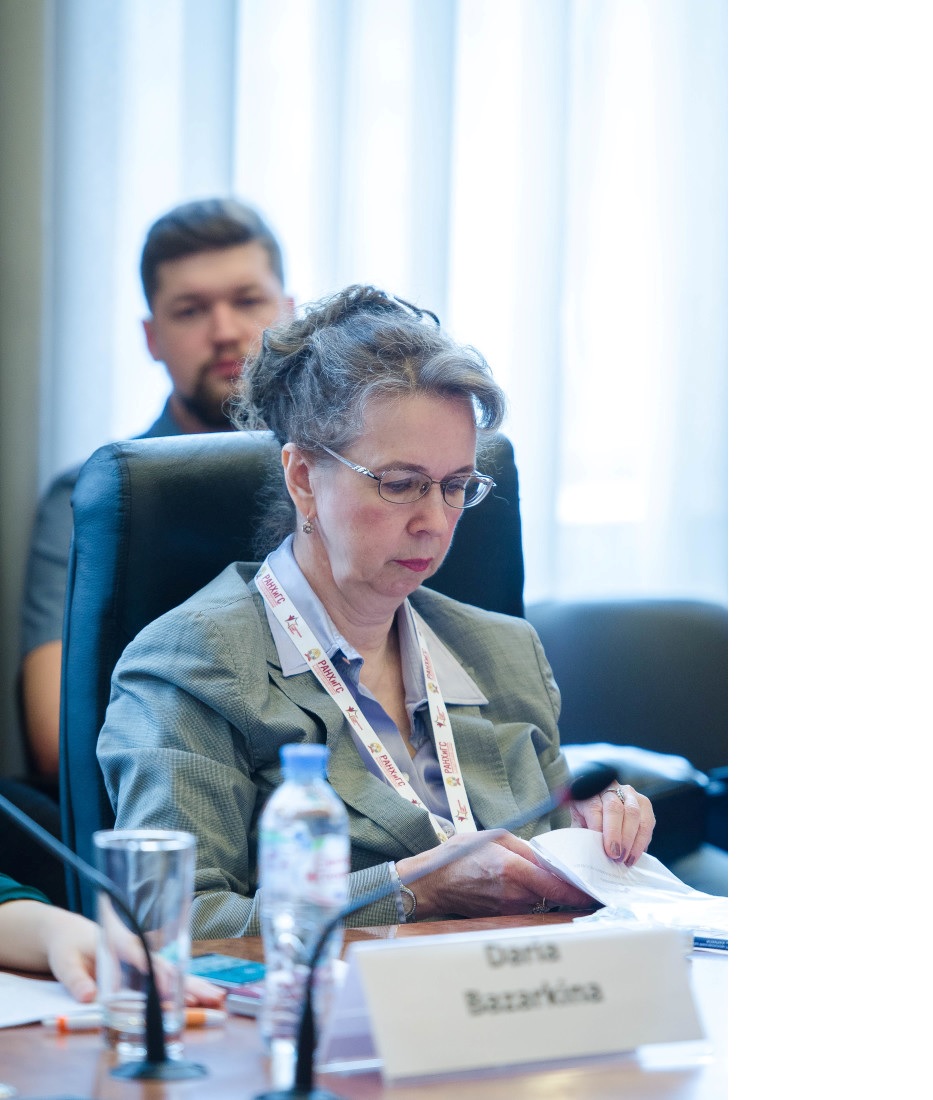
Natalia Bubnova, PhD, Leading Researcher, IMEMO RAS, stressed in her presentation that cutting relations between the EU and Russia was not inevitable despite the opinions of many experts. It was not only the result of pure politics but largely of misperceptions. The containment begun three years ago and was reminiscent of a wrong policy based on wrong assumptions. These assumptions seemed to mirror each other on both sides. The West thought that Russia was aggressive and tried to reconstitute a lost Empire, to grab lands from neighbouring countries, and to spread authoritarianism to blur the international order. In fact, what it wanted, according to Dr. Bubnova’s, was not to come within the realm of American domination, and to firmly foster communications with most of the countries in the world. More and more, Russia is being perceived as the Evil Spawn, especially in the United States. Russian authorities, as Dr. Bubnova noticed, considered that the West is behind the “colour revolutions”, events of Arab Spring. “Now increasingly, they tend to think that the West and particularly the USA want to rip Russia’s part for the sake of its natural resources”. We face, in our efforts to combat the misperceptions, double predicaments, prejudices among the experts on both sides. In Russia there is also a lack of financing foreign contacts in the Academy (of Science). “At least that’s what the President of Academy told us”. The events do take place, but they are not financed by academic institutions. And also, as you know, in the last years several laws were approved, including the law on foreign agents which prevent decent research centers being independent because they cannot count on international financing anymore, or they have to register as “foreign agents”. In Russia, the word “agent” has a bad connotation. “The good news is that we are still kicking”, we are still free to say what we want, “so do not give up on us”. Deficiency in promotion is our weak spot and lack of advertisement due to “government control”. I hope that we will succeed in our deeds.
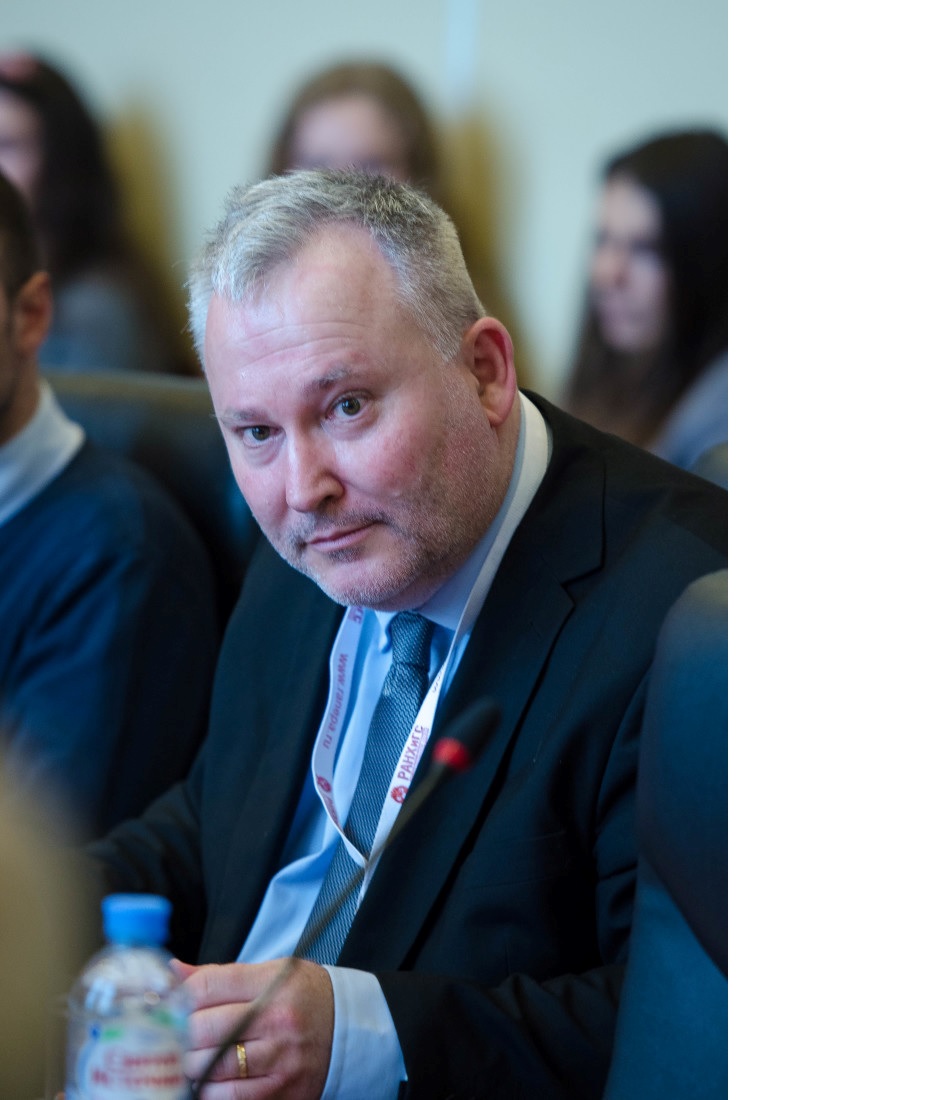
Greg Simons, PhD, Associate Professor, Uppsala University: “I will reiterate some points and tell you some new perceptions that appeared during the years of our research. What we have here is kind of living in 1984 (Orwell). Public Diplomacy is not being used to build bridges, it is being used as a specific obstructive marketing, negative force to create differences. The idea of creating a binary perception of the world where you have diametrically opposing realities – one of Good and one of Evil – requires the perception and the belief that if one of the sides is good the other is supposed to be evil. The one side is contradicting with the other, and the good side needs to be presented like “us”. So, this is the effort to stimulate an empathy. The other side needs to be defined as a threat to the society’s basic values.
Fake news is more a symptom of a problem, than a problem. It indicates censorship, and in this regard, this is a defensive mechanism. It’s not the position of strength. Position of strength, Dr. Simons supposes, is when we convince positively, it is soft power of attraction, not fake news. Neo-liberalism is running its cause, it’s about political hegemony. Dr. Simons referred to Barack Obama who, after Donald Trump became President of the US, stated that Angela Merkel was now the leader of the “Free World”. It’s an indication of the “binary thinking”. In presenting this binary opposition to the Western audiences there are two ways. The first one is to create a sense of fear. The people fear that the bad things will happen to them personally in cause of Russian subversion or aggression. And those who resist this orthodoxy of knowledge are being punished. People are being threatened (in employment, funding) for not wanting to be narrated. This narrative is formed by East StratCom Task Force as well as by a number of NGOs. There is a very little knowledge about the information flows, but I can say for a fact that when Russian media gave six different opinions on one event, East StratCom called it “Russian propaganda”. But, excuse me, what in this case was presented is media pluralism?” Dr. Simons asks and draws the conclusion that we deal with a kind of intellectual degradation.
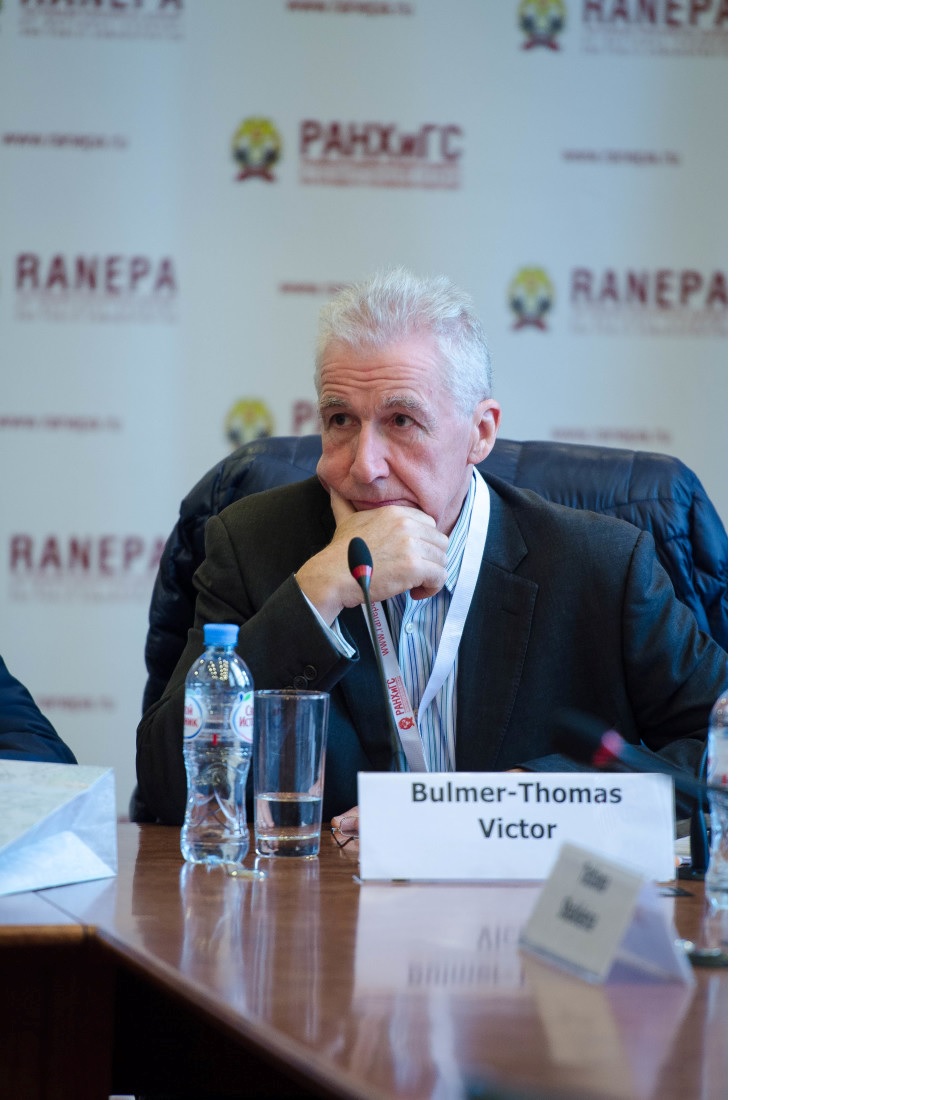
Prof. Victor Bulmer – Thomas, Associate Fellow in the United States and the Americas Programme at Chatham House, Honorary Professor at the Institute of the Americas (UCL), presented his vision of future of the left in Latin America.
The left in Latin America has been a subject of disinformation campaigns”. Venezuela had its first huge success when the new left-wing president was elected in 1998. At that time, the region was dominated by center or rightist governments, implementing neo-liberal agendas, adopted by Washington consensus. Except for Venezuela, only Cuba proclaimed anti-imperialism. In the next ten to fifteen years, the situation changed dramatically. The left or central-left won the elections in Argentina, Brazil, Chile and Uruguay. The left also won in Bolivia and Ecuador, and governed Peru. More surprising was that the left won in Paraguay, for long times dominated by business and military. In South America only Colombia depended on US assistance and fought a guerrilla war.
The Latin American political landscape is burdened in the last ten years by the defeats of the left in region. The defeat took on three main forms. First of all, that was a defeat in the elections (in Argentina, Peru and Chile). In all three elections economic conditions played an important role, and defeat could be planned on the difficult disclose of the global financial crisis. However other factors were important as well, for instance, high inflation (Argentina), corruption (Peru and Argentina) and the poor quality of the public services including pensions in Chile. Two defeats by the left were not linked to the elections: impeachment was used in Paraguay and Brazil because of corruption scandals and allegations of misuse of the public front. One defeat of the left was a result of a military coup (in Honduras).
Six defeats of the left in Latin America do not necessarily represent a permanent reversal. The left in Chile was defeated before the elections, the same could happen again (with rightists). The left could also win in Argentina, if they would unite around a single leader. There are no obvious obstacles to the left-wing’s victory of the elections in Peru.
Prof. Bulmer – Thomas considers that in relation to Brazil it will take many years before the leftists can once again mount a credible campaign for the presidency as a result of Lula’s jailing. There are credible candidates but it’s difficult for them to overcome the pressure in the media. There are few opportunities for the left in Costa Rica, Columbia and Mexico as electoral fraud was used two times in these countries to prevent the victory of the progressive candidate Lopez Obrador.
The left remains a significant force in the region. It is hegemonic in Cuba, dominates in Nicaragua, and survives in Venezuela despite hostile combat. The left has a very good chance to win the elections in Mexico; a smaller chance in Colombia; a realistic chance to return to power in Argentina, Chile, Panama and Peru; and a small chance in Brazil. There is an opportunity for the left in Dominican Republic, Guatemala, Haiti, Honduras and Paraguay, if the left wing will create a political block to present.
In Prof. Bulmer – Thomas’ opinion, the left can be proud of the current situation, but during the future electoral campaigns they should offer and implement solutions for problems such as social injustice, citizens’ security and environmental pollution. They also should concentrate on domestic issues which are taking their toll in Latin countries. In Mexico, for example, anti-imperialism lacks practice, the Mexican elections will be determined by domestic issues, among which corruption is the most important one. Maduro’s government in Venezuela uses anti-imperialism in the presidential campaign and it probably will win the elections next month. However, it is not the most actual message in comparison with food security.
The political landscape in Latin America has become very varied. The reversal process is not ended and the situation in the region is not stabilized. There would be periods of parity or clashes of the different forces but the political systems in any case will not be hegemonic.
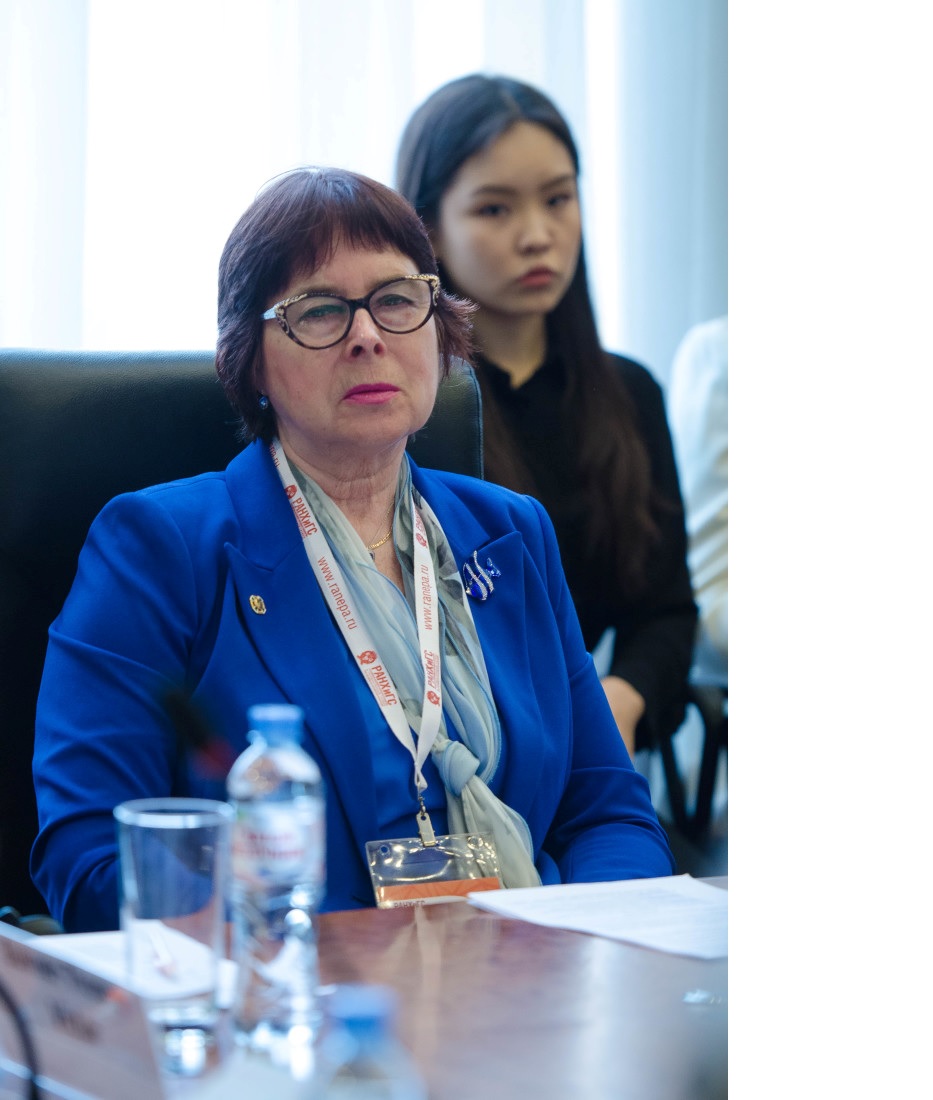
DSc. Tatiana Shakleina, Head of the Department of Applied Analysis of the World Political Processes, MGIMO-University, presented the analysis of her co-operation with different think tanks in the USA and stressed that the positions and strategies of American NGOs, non-partisan organizations are very close to the government’s ones. It is not only an issue of finance; their finances are coming from different sources (federal, private and even personal). “My last visit to Washington and San Francisco showed that the majority of Washington think tanks do not behave as NGOs and non-partisan organizations who care for truth, for the objective presentation of the situation in the USA and in the world. I don’t want to insult them, but unfortunately in all my conversations it was mentioned here that we have a deadlock”, Tatiana Shakleina said.
She stressed that it is very important to speak even under current conditions, to explain the Russian position and view. We need to be more active, to speak and write more in English and to address the American academic community and society, the EU and Latin American countries so they could hear a different point of view. There truly have been many misconceptions about Russia especially on US Television and Mass Media. If you watch American TV, you have a very different picture which has very little to do with reality in general and the operations that were held in Syria. Also, students, and casual public (by my research) ask questions that are based on wrong information and mispersuasion. They don’t have different channels to compare the views.
Tatiana Shakleina offered to use MGIMO-University experience, where the students try to compare different opinions, in the bilateral projects and joint publications: “I’m not a pessimist, I’m an optimist in general in my life but in the US, I don’t see any possibility in the near future to break through the mainstream political community… People are different, they are still friendly, many of them don’t know and are not very much interested in what is going on, but they … want just to visit Russia because of the World Championship in Football”. There are ordinary people, they are not spoiled by American TV propaganda, and we should use the opportunities, to be more active in establishing relations with them. However, as Dr. Shakleina noticed, her colleagues (even in business) in the USA, who tried to develop the dialogue with Russia and not to enlarge sanctions, started to get e-mails with threats and insults. It is the great issue with the freedom of speech, and the question is, how far can we go in this supposedly “Free speech” kind of way.
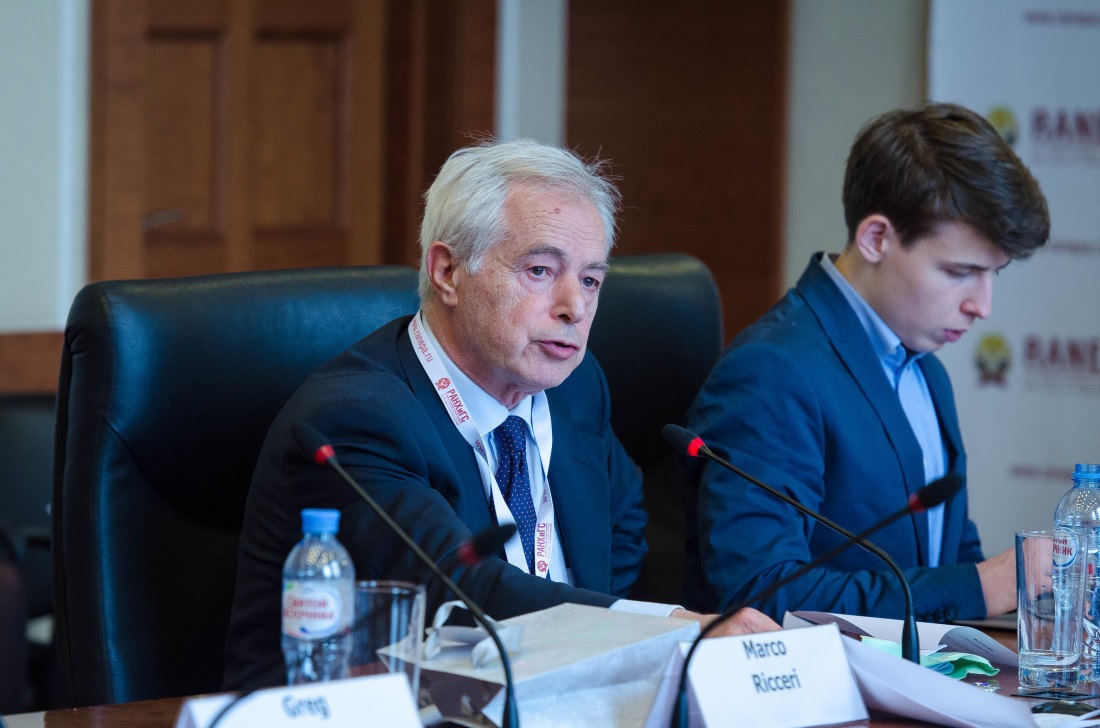
Prof. Marco Ricceri, Expert in European social and labour policies, acting as general secretary of EURISPES (Institute for Political, Social and Economic Studies, Rome), Coordinator of the European-Russian Communication Management Network, Honorary Doctor of the Institute of Europe in Moscow (Italy) explained that in the current political difficulties, when politics have so many problems, it’s the perfect time for the civil society to show initiative, to build the bridges between countries. It plays a supplementary and subsidiary role because the states are in big crisis. It touches upon important questions about the role of the national states in the contemporary world. There are a lot of political issues that we are aware of, for me the most important fact about this mass propaganda, is that people still come to countries despite of the politics and such. Russian tourists in Italy “maybe are better ambassadors than politicians”.
The purpose of the book presented here (Strategic communication in EU-Russia Relations: Tensions, Challenges and Opportunities – Editors E. Pashentsev, E. Vlaeminck) is to open the new scenario, to fulfil the new goals.
There is a significant contradiction. From one side, we see a lot of interpretation of the Russian politics. From the other side all the governments signed the 2030 Agenda for Sustainable Development, the great correction of the economic development model. So, it’s a confrontation on the one side and a partnership on the other one. On the other hand, there are a lot of internal problems in the EU. Two years ago, the European Commission addressed to the Parliament: “We are in existential crisis”. And in fact, the people in Italy have completely different visions and positions with the people, for example, of Estonia, Lithuania. This is a moment for the EU to start again from the ground element. “And we go further but it’s more and more difficult”.
Prof. Ricceri illustrated his opinion with a historical example. When the European common market started in the 1950s, they had an idea to continue the integration in the culture sphere, to create an expert commission and to write the history of Europe in common. That first attempt was a disaster, after that they tried to create EU University to find a common vision of the reality, but it was not a success. The same happened in the 1980s with the same result. Emmanuel Macron expressed in the European Parliament the wish to create a new project in the EU, but he acted alone in relation to Syria. “We see signs of the civil war inside the EU”- Macron stated in the EU Parliament, and it sounds horrible. How can politicians say such a things, in this critically flammable environment, asks Prof. Ricceri. If we look through the EU documents, resolutions, they are completely irrational because they have a goal to initiate communication against Russia in the world. There is no strategy and vision in these documents. To be rational, there has to be a vision to stop conflicting and make a solid world and peace. Professor Ricceri suggests to shift the attention from the technologies such as fake news into the philosophy, the common mission, to new direction of strategic communication and its vision. It’s necessary to understand where we want to go.
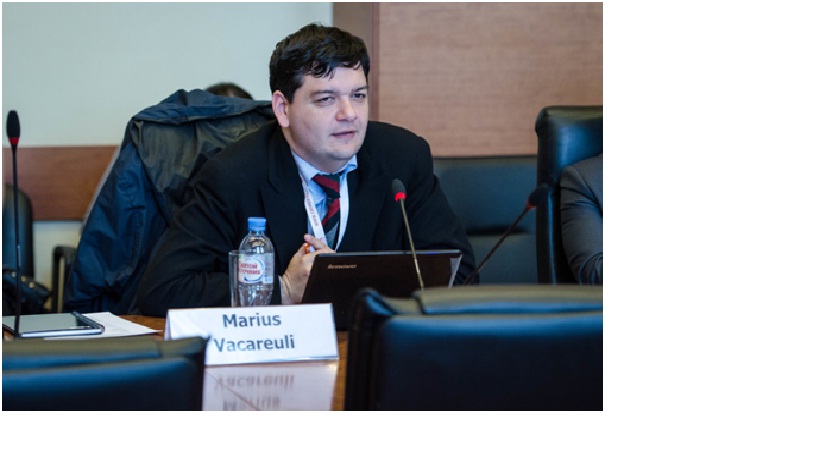
Dr. Marius Vacarelu, Political scientist and legal expert from the National School of Political Science and Public Administration in Bucharest (Romania), presented a paper on the problem of transparency and truth. He noticed that lawyers have their own vision about communication or strategy. If we discuss the transparency and truth we cannot ignore the interests. There are moments when we want transparency from other people, but we don’t practice it in our behaviour. Sometimes, the truth is important for us and we begin to share our ideas through all the channels. Everyone in this world pretends he is dealing just with the truth. No one will say he is lying. In the history of international relations there are many cases of lie. It’s a problem whether we present according to our interests or the real dimension of truth. According to the real dimension of truth, we have to remember the Holy Bible. When Apostle John said that Moses brought the law, and Jesus Christ brought truth. Law is made by human beings and can be changed. The UN practice and international law is changing as well.
If we talk about strategic communication, we need to have a plan. But is this plan influenced by truth or the different levels of transparency? The people do not always accept the value of transparency. Transparency is not only value, it’s also a principle. And if we want to give a characterization to this century, we should say that in this century too many people fight against principles.
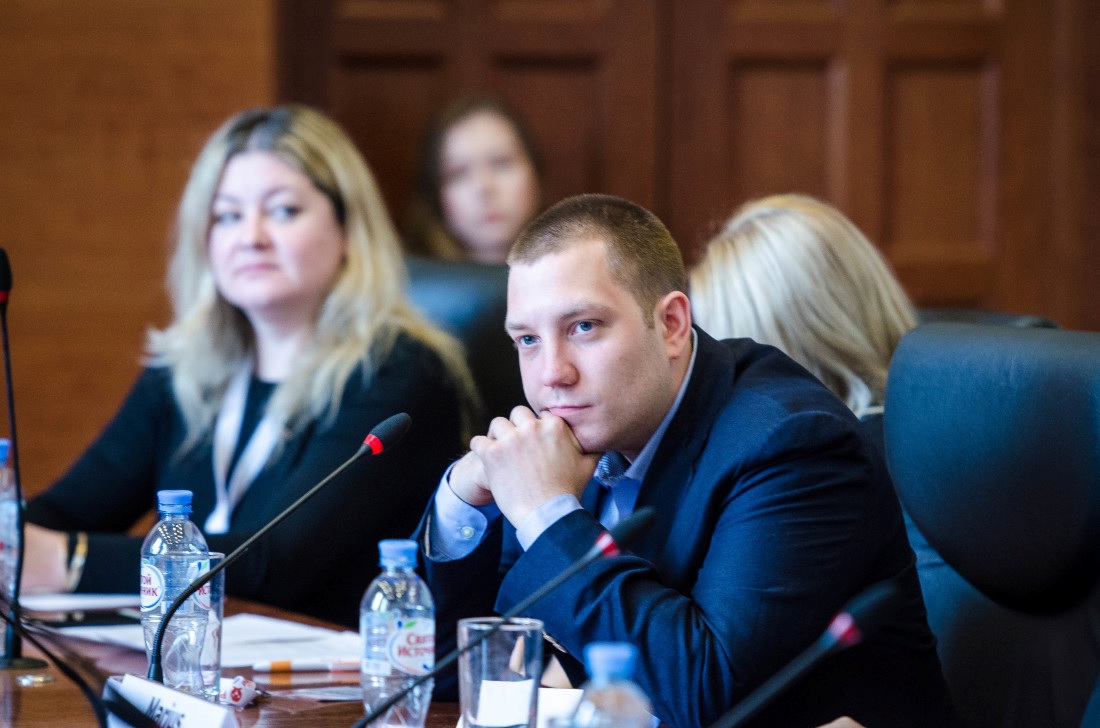
Erik Vlaeminck, PhD student at the University of Edinburgh quoted the High Representative Frederica Mogherini (2016): “Culture brings people closer, prevents conflicts, and helps wounds to heal”, and wondered how this relates to EU – Russia relations.
Culture plays a very ambiguous role. This is linked to its association with strategic communication and public diplomacy. A reconceptualization could revive the relations. There is a real potential for building cross-cultural relations between the EU and Russia. We are not two different civilisations as the governments on both sides want to make us believe. Culture should become the basis of the EU – Russian relationship.
On the official level dealing with cultural cooperation and dialogue, priority was given to hard elements of culture such as science and education and soft elements such as art were neglected. Although cultural cooperation was initially seen as a potential strong element in the relation, nowadays, there is no systemic approach addressing this factor.
Culture has always been a secondary matter in the relation. There is a lack of a central organ in this sphere. Similarly, we notice misunderstandings of what benefits culture could bring to the relations. At both sides, we can see that there is a tendency to instrumentalize culture and to create civilizational models. Culture became in this way a tool of strategic communication.
There are many attempts to rebuild the contacts between Russia and the EU on the level of civic society. It could be redefined in terms of cultural relations referring to trust on one hand and mutual benefits on the other hand. Culture is a huge potential source of dialogue, the emphasis should not be based on bias and stereotypes. We have to emphasize the different faces of a nation’s culture. Civic society can play an important role in the process of cultural relations. It would be useful to create a common organ coordinating EU – Russia cultural relations, Mr. Vlaeminck concluded.

During the roundtable the presentation of a book published by the International Centre for Social and Political Studies and Consulting Strategic communication in EU-Russia Relations: Tensions, Challenges and Opportunities”(Editors E. Pashentsev, E. Vlaeminck), was organized.
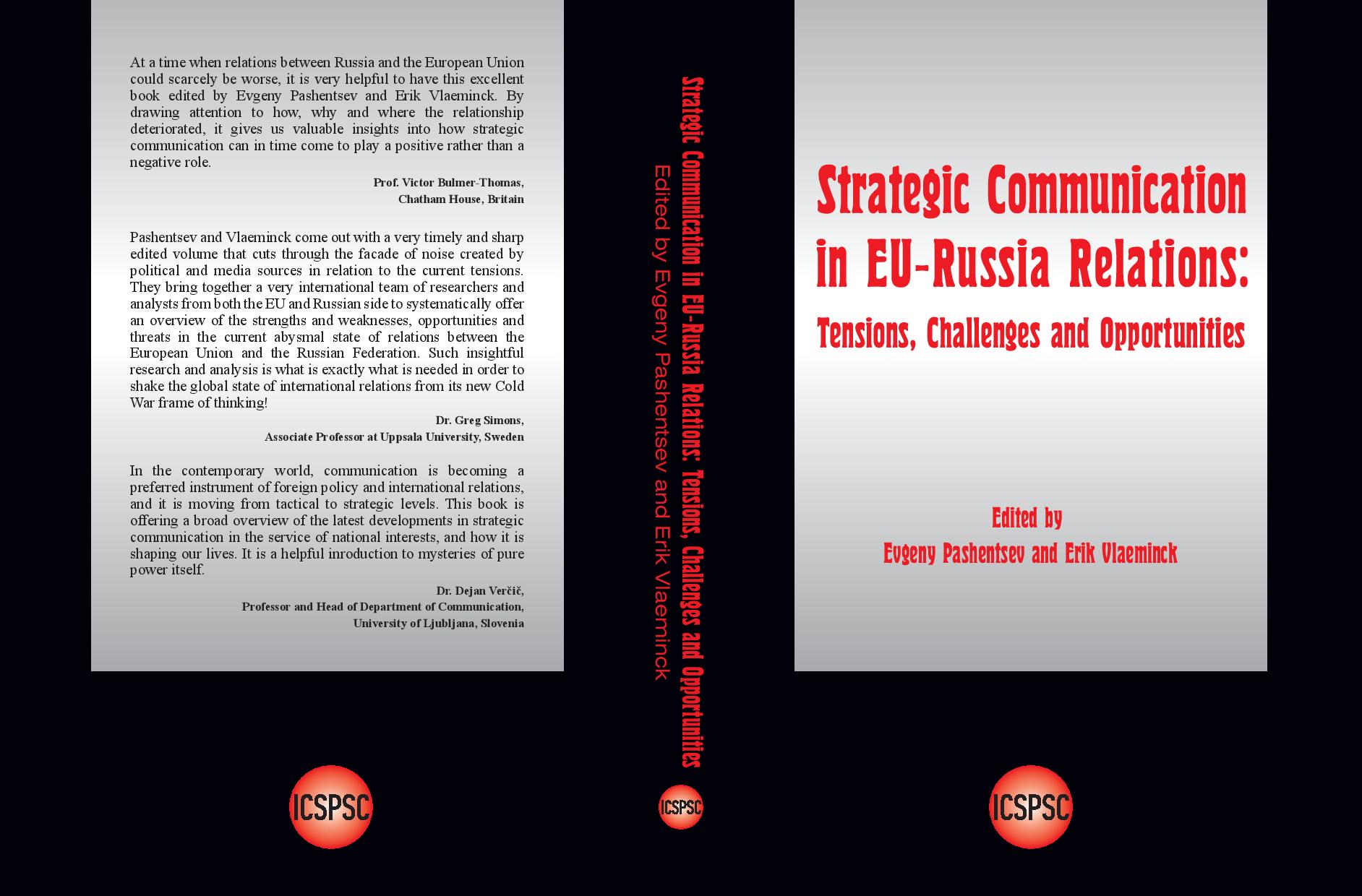
According to Prof. Pashentsev the book team includes nine contributors from Belgium, France, Italy, Romania and Russia. The foreword to the book was written by Italy’s former Minister of Foreign Affairs. The authors have tried to find solutions to the most important issues that lie on the basis of strategic communication between Russia and the EU. The book got positive feedback from researchers from six countries, not only from Europe, but also from Australia and Latin America. The contributors’ team has a plan to republish the monograph in the future in one of the Western publishing houses. Professor Pashentsev also invited the colleagues to participate in joint academic projects in five international associations: European-Russian Communication Management Network, Russian – Latin American Strategic Studies Association, Russian – Asian Strategic Studies Association, Russian – African Strategic Studies Association, Russian – European Strategic Studies Association.
As it was stated by co-editor Erik Vlaeminck, when the authors started writing the book, they saw a huge gap in the literature about this subject. The presented book could be the first monograph completely devoted to strategic communication in EU-Russia relations. The main message of the book is that dialogue is not only necessary but also possible, and we need to approach the issues more “strategically” when it comes to strategic communication. Mr. Vlaeminck stressed three points on the book: 1) communication is changing, it has visible effects of international system; 2) strategic communication is affecting people to people relations; 3) despite the clear tensions and troubles there is always a way out, we just have to start imagining it.
Greg Simons, an associate professor at Uppsala University is one of the six experts who endorsed the book. In his comments at the presentation at RANEPA, he said that there is a tendency toward monolithic argumentations in books of this type, but that the book introduces different opinions on those problems of strategic communication. He stressed the danger of a strict binary propagandistic vision of the world just in black and white and assessed the book as a good start to introduce a more critical reflection of problems related to strategic communication. Dr. Simons hopes that such works will help to broaden people’s knowledge and overcome today’s monologue understanding of the world.
Note: The authors would like to thank RANEPA students Nikita Ivanov and Huseyn Abbasov for their invaluable help in preparing this roundtable summary.
See video of the event Video YouTube



 0
0 12993 Views
12993 Views 7 May 2018
7 May 2018 Darya Bazarkina, DSc, Professor at the International Security and Foreign Policy Department, RANEPA, programme coordinator on communication management and strategic communication at the International Centre for Social and Political Studies and Consulting; Anna Velikaya, PhD, Asian Strategic Studies Coordinator of the International Centre for Social and Political Studies and Consulting, member of Rossotrudnichestvo Humanitarian Advisory Council
Darya Bazarkina, DSc, Professor at the International Security and Foreign Policy Department, RANEPA, programme coordinator on communication management and strategic communication at the International Centre for Social and Political Studies and Consulting; Anna Velikaya, PhD, Asian Strategic Studies Coordinator of the International Centre for Social and Political Studies and Consulting, member of Rossotrudnichestvo Humanitarian Advisory Council